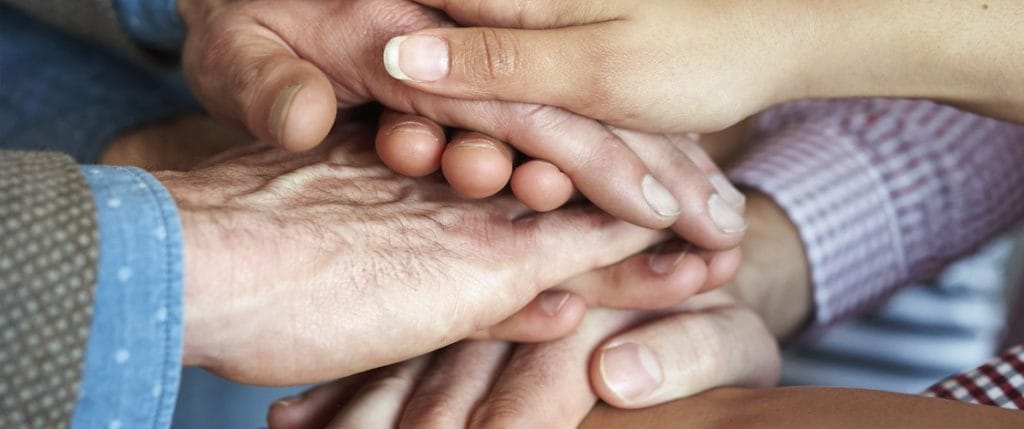It’s billed as “the day the silence ends.” On Oct. 4, top-name performers, political leaders, and tens of thousands of people who care about resolving a public health crisis that kills 350 daily will converge on the National Mall in Washington, D.C., for the UNITE to Face Addiction rally. Staged by the nonprofit group Facing Addiction with the support of more than 500 partnering organizations, the rally aims to kick-start a conversation about addiction that will lead to greater public awareness and understanding — and by extension to greater political will to seek solutions. “I think it’s going to be a transformative moment,” said Pat Taylor, the rally’s community outreach organizer. Never before, she said, have so many diverse groups come together to demand change in the way we deal with addiction. “What’s amazing is we have our core base — the recovery community organizations and all the organizations that are providing care — and then we are adding on to that with groups such as the drug courts, health care organizations, labor unions, churches, temples, the LGBTQ community. It’s building into something so much bigger, which is what we need if we really want to effect change.” A highlight of the rally will be free performances by musicians who can speak in personal terms about moving from addiction to recovery — among them, Steven Tyler, Joe Walsh, Sheryl Crow and Jason Isbell. Speakers will include Michael Botticelli, the White House director of National Drug Control Policy, himself in recovery. A number of ancillary events are planned around the rally, the most vital of which is Advocacy Day on Monday, Oct. 5. It’s a time for citizens to meet their congressional representatives to talk about the need to treat addiction as a public health issue rather than a criminal one and to urge support for funding and legislation designed to save lives and lessen stigma. “We want to be very specific in terms of what we’re asking members of Congress on Advocacy Day,” Taylor said, noting that talking points can be found on the Facing Addiction website and that a training webinar is available. Those interested in being part of Advocacy Day must sign up by Sept. 15. The goal, Taylor said, is “amassing this whole new army of people who care, and part of that will be hopefully continuing to work together for meaningful funding down the road.”
“A Real Desire to Come Together”
Groups working to improve our nation’s response to substance use have long dreamed of a rally that does for addiction what other rallies on the National Mall have done for issues such as civil rights, women’s rights and the AIDS epidemic, and now seems like “the moment” for the message to be delivered and heard, Taylor said. “For the first time, people are wanting to identify with this issue.” Not only have organizations from across the globe, entertainers, public figures and politicians given their backing to the rally, she noted, more than 1,000 individuals have already signed up to volunteer at the event and in getting out the word. (If you’d like to be one of them, visit the website’s volunteer page.) Taylor said she believes the enthusiasm for the rally stems from a variety of factors that have combined to put addiction at the top the national consciousness. One is the inclusion of addiction treatment in the Affordable Care Act. This change means the concept is now in the political arena, and more people than ever are reaching out for help. Recovery communities, which represent the more than 23 million people in successful recovery in the U.S., have also become more visible and more adept at getting out the word that treatment can work. The nation has also been shaken awake by an opioid epidemic that has played a key role in making drug overdose the leading cause of death from injury in the U.S. Parents who have lost children to addiction are also getting organized “in a way we’ve never seen before,” Taylor said. “All of these different courses are playing out in communities, and the result is a real desire to come together.”
Normalizing Addiction
According to the National Institute on Drug Abuse, illicit drugs and alcohol cost society more than $400 billion annually in crime, health care and lost productivity. That means “even if you’re not directly impacted by addiction, you’re still impacted,” Taylor said. “The whole society needs to care about this, just like it cares about cancer, diabetes and other health conditions.” That, at its heart, is really what the rally is about, as well as “normalizing addiction as a health condition, so that people can speak about it, just like they talk about anything else,” Taylor said. “I think events like this and what comes after it will really help bring change so that people aren’t ashamed and aren’t afraid to get help, and family members who have someone struggling don’t blame themselves for the person’s addiction and know where to go for help.” But she said the rally won’t benefit only those directly impacted by drug addiction. In the long run, she said, it’s in the best interest of all of us to “make sure we can prevent as much of this as possible, and for people who are struggling, regardless of how you think they got there, it’s our financial and social obligation to get them the help they need to recover.”

